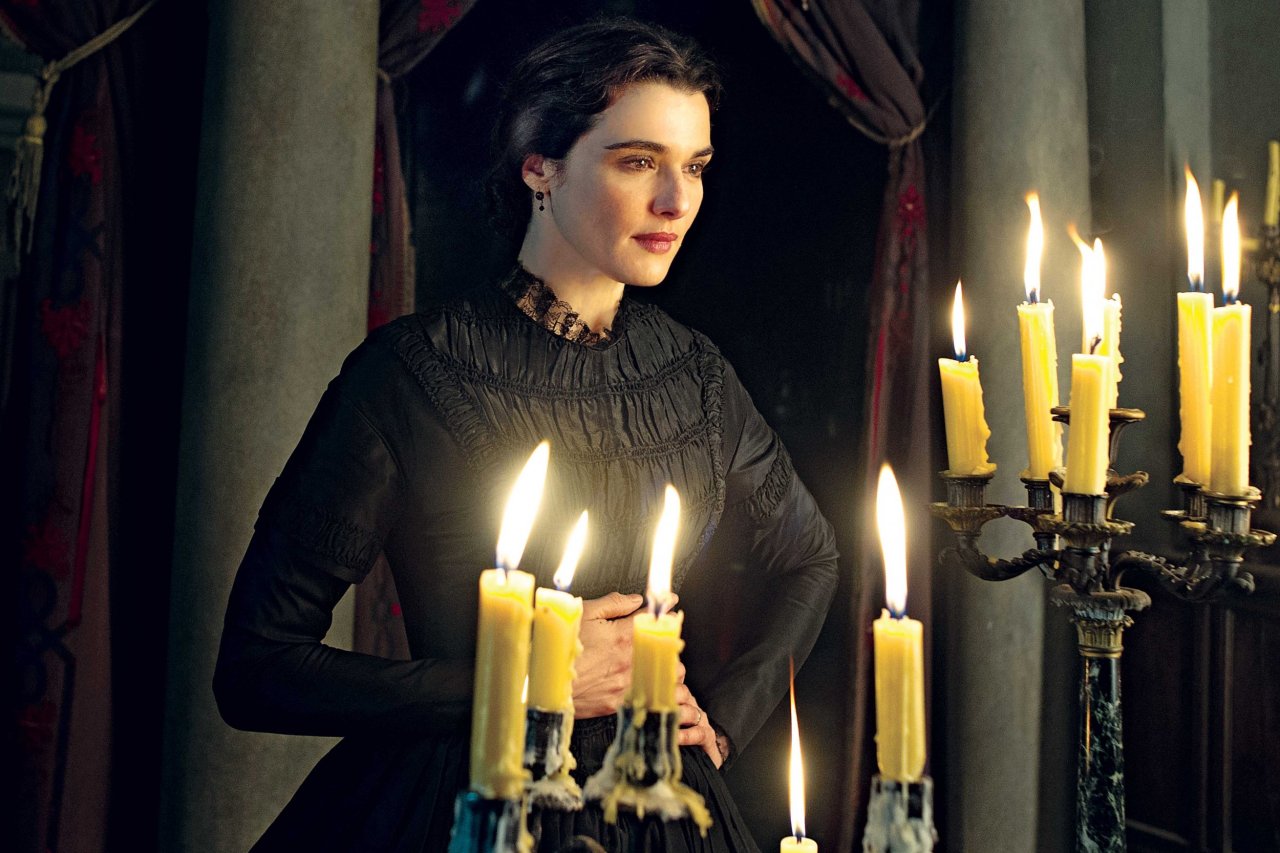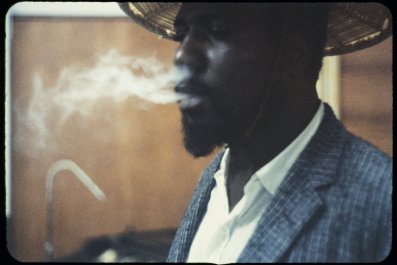Director Roger Michell has been quoted as saying of the novel My Cousin Rachel that its creator, Daphne du Maurier, "lights her scenes like Caravaggio and writes them like Hitchcock." So how to account for his film version, one without menace or shadows or the voluptuous morbidity that's the hallmark of gothic melodrama? It's true that du Maurier's novel—which the English author of Rebecca and The Birds published in 1951—has its sluggish patches. But it also has a cumulative gloomy undertow, and it's a fine example of melodrama, a much-derided form that has frequently served to express what can only be called feminist concerns.
Essentially, it's a novel about the fear and unworldliness that underpins traditional masculinity, as well as the sexual jealousy that turns it into a toxic brew. The story is told by Philip Ashley, a 24-year-old orphan who has been brought up by his cousin Ambrose on the latter's estate in Cornwall. Together, they live a life utterly without women, comfortable in their moldering, masculine domesticity. When Ambrose's weak constitution sends him to Italy, in search of warmer weather, he meets and marries a half-Italian, half-English widow named Rachel. At first, the letters that Ambrose sends home to Philip speak of a newfound happiness, and the younger man is filled with jealousy. But when Ambrose's letters turn to pleas for help—and claim that Rachel is out to destroy him—Philip sets out for Italy, only to arrive after Ambrose has died. Believing Rachel to be an evil schemer, Philip is unprepared for the gentle woman who eventually shows up in Cornwall.
Every suspicion Philip harbors against Rachel has a rational explanation that he, drawn to fantasies about the duplicitous ways of women, initially disregards. In the book, he is a fool but not incapable of charm, and as his suspicions give way to infatuation, Rachel falls for him too. But the suspicions don't go away, and time and again, Rachel, a woman with all the worldliness and maturity Philip lacks, finds herself wounded. The women who read du Maurier's book no doubt recognized the type he represents: the puppy dog who believes his experience on his own pitiful turf amounts to a worldview.
Michell, who had his first big hit with 1999's Notting Hill, is no stranger to psychological subtext or adapting novels: He helmed the film version of Ian McEwan's Enduring Love and Jane Austen's Persuasion, for TV. But here, he races through half the novel in roughly 40 minutes. Instead of developing the underlying emotional themes that would create the much-needed tension, Michell resorts to montages that reduce each incident to mere pictorialism. There's no rhythm or momentum to the filmmaking, and when the climax arrives, it is flat and prosaic, robbed of any tragic inevitability.
The gothic melodramas in which du Maurier specialized exude an enveloping sense of death; youth and romance don't stand much of a chance. Reading My Cousin Rachel is like being in a room slowly filling with the smell of rotting orchids. Michell, who not only directed but wrote the screenplay, establishes a tone in which fatalism mingles with the characters' flaws. Sam Claflin, who looks like a peevish Daniel Brühl, is a charmless Philip. He lays on the entitled callowness so thickly that the question of whether Rachel is the vixen he thinks she is fails to have any suspense. In fact, you begin to hope that she is evil, if only to give the little prig what's coming to him.
The only reason to see My Cousin Rachel is Rachel Weisz as Rachel. But what else is new? She is generally terrific, as she was in two very different films last year, The Light Between Oceans and the underrated courtroom drama Denial. Here, she radiates both pliancy and a stubborn determination to live life on her terms, all judgments be damned. Weisz, superbly, captures the frustration of a woman who shows tenderness to a young man and then has to live with the frustrated realization that she's fallen for a boy. Du Maurier's novel was melodrama infused with the poisoned suspicions of male-female relations. Weisz does full justice to the tragic realism inside the contrivance.
My Cousin Rachel is released June 9 in the U.S. and U.K,; worldwide releases continue until September 7.


















